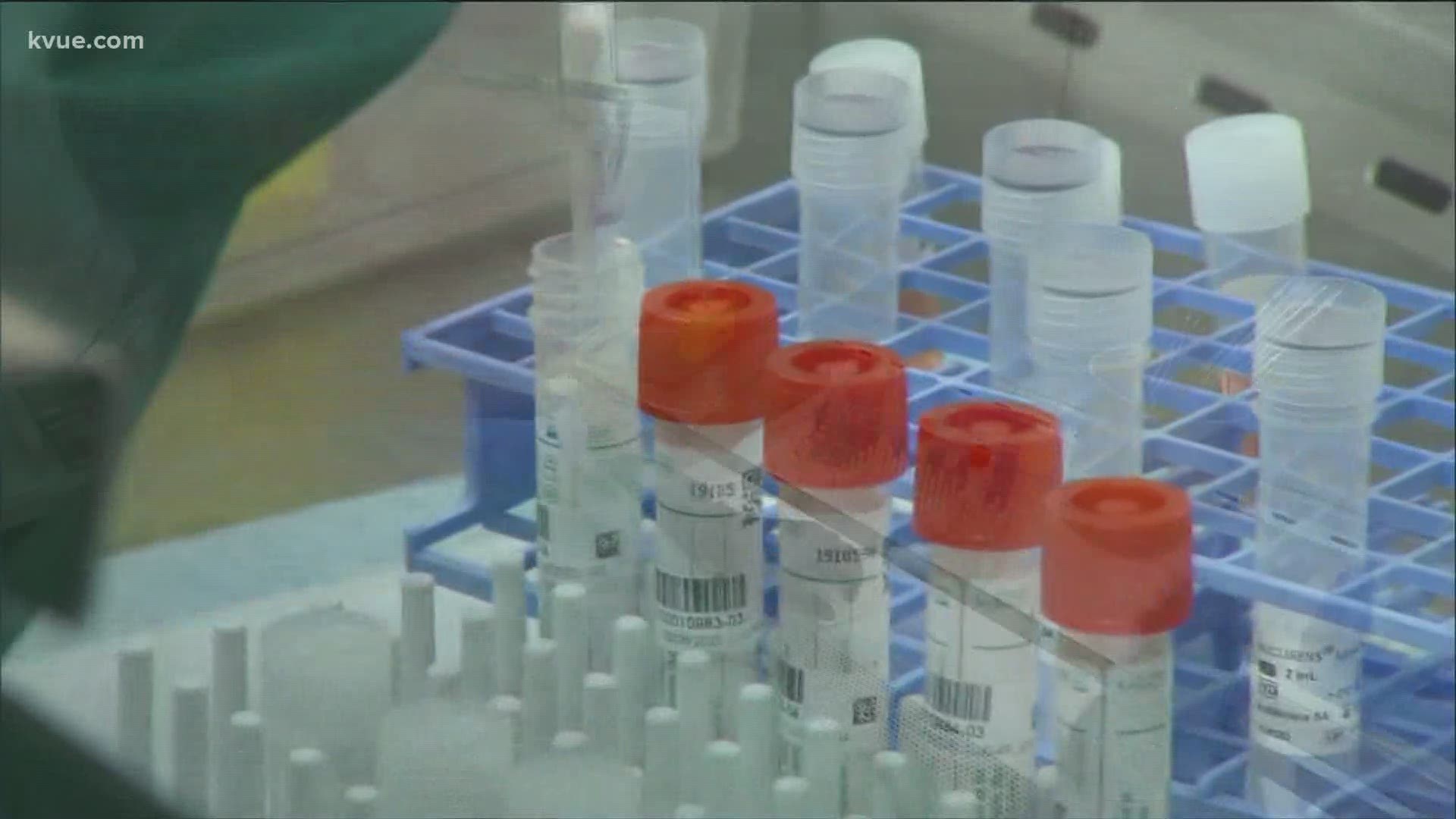AUSTIN, Texas — Hundreds of trials are underway right now in the U.S. Researchers trying to learn as much as they can about COVID-19, so we decided to ask an infectious disease specialist about some of the latest research.
One new study shows people with certain types of blood may be more susceptible to severe symptoms of COVID-19.
Dr. Ogechika Alocie, M.D., serves on the Texas Medical Association’s COVID-19 Task Force and is an infectious disease specialist from El Paso.
“One of the things here in this 'New England Journal of Medicine' article is what do our blood groups tell us about the groups that are getting sick and not getting sick," he said. "And if you look at this study, it seems people with blood type A are needing more oxygen, support almost 50% greater risk of needing oxygen than those with blood type O – they have 50% less chance of having a severe case of COVID-19. It’s not clear why that is and there are a whole host of genotypes depending on what type of blood you have, but it seems to give us a signal on how we can treat and focus care and treatment to those that are going to have the highest risk down the line.”
Dr. Alocie said because this is a novel virus, there are a lot of things to learn.
“The next step, and the researchers eluded to that, is what exactly is causing that? There’s been a lot of talk of Ace 2, or enzyme two, something the COVID virus uses to attach to the cell. How do we block that," he said. "You hear about people getting a lot more blood clots than usual. Do these blood types predispose you to those kinds of complications? And if they do, could we have early treatment?”
“It gives us a little more insight into who we need to focus on, not that we would take away care from anyone else like type O instead of type A, but it gives the hospital team another clue to say, 'This may be someone I need to take a closer look at, to make sure they are safe the days they are in the hospital,'” he added.
Why are minorities at greater risk?
There is also research that shows minorities tend to be more likely to get COVID-19.
“It’s possible that people on the lower economic spectrum or people who can’t avoid sheltering in place may have to be on the front lines," the doctor said. "They are making the deliveries, delivering our food, they’re in stores or warehouses or meatpacking plants, where the racial propensity is Hispanic, or in healthcare, African Americans. It’s not necessarily going to be a genetic factor, it’s a social factor. These are the racial groups that are at highest risk because of how they’re living, where they’re working. They may live in tighter quarters. These are things that are not unexpected. Viral diseases quickly show the haves and the have-nots, and it’s one of the unfortunate legacies we have in our country at the moment.”
School options
As far as testing, Dr. Alocie said it is not possible to test everyone.
“These are some of the same questions that are going to come up in the fall: What are we going to do with school," he said. "There are lots of different plans out there. There’s the Notre Dame plan – bring back early, get them out early. Other school districts are trying to stagger kids by age or grade or how important it is for them to come out on time. I think it’s just important for the parents and the school district to have a plan, a rational plan, make sure it makes sense for them. I don’t think we’re going to be at a point where we can test everybody now or in the fall. We’re going to have to live with this virus and give science a chance to catch up.”
RELATED: Draft documents show Texas planning few mandatory safety measures when public schools reopen in fall
“I’m really hopeful by the time we get to the fall, we can slow down the transmission between having a package of therapeutics, understanding the disease better and potentially having some new vaccine candidates," he added. "We’ll be a lot more comfortable in how we manage this disease than we were in March and April.”
RELATED: Texas study shows COVID-19 convalescent plasma therapy is safe and helps most patients get better
PEOPLE ARE ALSO READING:

